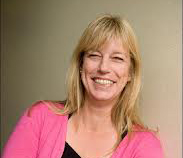Ham And Eggs Anyone?
By Susannah Freymark
It’s time to turn. It’s time for The Great Turning, says Joanna Macy, ecophilosopher and activist.
The Great Turning is the third revolution, the transition from the industrial revolution to a life sustaining society. The first was the agricultural revolution developing over centuries.
Then within a few short decades came the second change, the industrial revolution that transformed the way we grew food, worked and lived.
The third revolution is what Joanna calls The Great Turning or the ecological revolution.
‘The earth cannot renew its resources as fast as we are taking them. It is a self-destructive system, this suicide economy.’
With more than five hundred people I sat in a Sydney auditorium to listen to Joanna Macy weave her Buddhist philosophies with her deep ecology beliefs as she spoke about the importance of The Great Turning.
She is one of many who speak of their passion for the earth. Lester Brown, Hunter Lovins, David Suzuki are up-front about their thoughts on the state of the world and what our global future holds.
Joanna Macy’s audience are activists and she is not afraid to bring forth the spiritual aspects on her discussion.
Deep ecology is the recognition of the interconnection of all living things and this includes our spiritual connection to our world.
The Great Turning, she says is the essential adventure of our time. ‘We are confronted with the greatest concentration of economic and military power the world has ever known in this post-industrial society.’
She reminded us of what Eisenhower said, that when people see the image of the earth from space it will be a revolution of consciousness.
This image doesn’t seem to have been enough to radically change the way we live in this world.
We marvel at the green and blue swirly photos of the planet, use them as logos and on greeting cards with snappy slogans but are people connecting with earth.
Really connecting?
It isn’t all talk; Joanna gave the audience five guidelines to support them in their efforts towards a more sustainable world.
1. Come in gratitude
Appreciate what you have, what you see and feel. Write a love letter to the Milky Way.
Practice and speak aloud what you love about this world.
2. Don’t be afraid of the dark
The dark is the grief, fear, outrage and dread. Don’t be afraid to hear the sound of the earth crying — it shows how big you are.
What batters you becomes your strength. To be able to suffer with your world means you can act on it.
3. Dare to vision
We’re not talking about a blueprint or someone telling you what to do. It is about listening to our hearts.
Our dreaming and visioning muscles need to be exercised.
4. Link arms with others
You don’t know what you can do until you start doing it with others.
Use your ignorance to ask outrageous questions. Find the power of the emergent properties that come out of relationship.
5. Act your age
This is the age that is beating in your heart, the age breathing in your lungs, the age that is the life of this planet. When you defend the earth you are doing it in the full authority of 14 billion years.
Joanna Macy, now in her seventies has been an activist for 45 years and has written many books including The World as Lover The World as Self. She has a deep passion for the earth and like Hunter Lovins she wants us to act now.
Hunter Lovins wrote Natural Capitalism and spoke at the A & I Hall in Bangalow. ‘We are treating the earth as a business in liquidation,’ she says. What is the worth of a stable climate? Of clean air? Of clean rivers?
Protecting the climate is profitable and she gave examples of companies such as BP that she worked with who were willing to change their business strategies to increase profit in a sustainable way.
Hunter’s pragmatic and economic approach to a sustainable world is a voice that the corporate world can hear and understand.
The corporations and governments must reinvent themselves she said and she urged the capacity crowd listening to her to ‘take care of what you have here in Byron Shire, it is incredibly precious’.
Her final words were direct and straight forward and summed up much of what I had heard over the month: ‘If we had some ham we could have some ham and eggs if we had some eggs.’
By Susannah Freymark. Originally published in Here & Now magazine, 2004/05
Leave your comment about Ham And Eggs Anyone? or share with your friends on Facebook

Leave a Reply